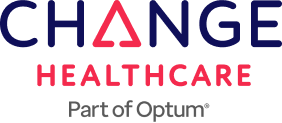Growth and Innovation in RCM
The RCM market is expanding rapidly, driven by AI, automation, compliance, and strategic consolidation.

Revenue Cycle Management
Market Analysis
The global Revenue Cycle Management (RCM) market is experiencing robust growth, characterized by expanding market size—from $151.91 billion to $343.78 billion globally, and significant U.S. growth with a projected CAGR of 10.1% to 11.55%. Key drivers include technological advancements, increased outsourcing, rising mHealth adoption, and regulatory initiatives. However, challenges such as shifting regulatory frameworks, workforce shortages, and operational complexities persist. Despite these inhibitors, continued investment and innovation are propelling market expansion. Stakeholders must strategically address these hurdles to fully capitalize on emerging opportunities and maintain sustained growth in the evolving RCM landscape.
~
$
157.9
B
Market Value 2024 (U.S)
$
272.8
B
Market Value 2030 (U.S)
10.1
%
CAGR (U.S)
Key Market Drivers
Increase in outsourcing of RCM
Increasing adoption of mHealth
Growing need to manage unstructured healthcare data
Market Inhibitors
Continuous policy changes and upgradation of regulations
Changes in regulatory frameworks
Specific demands of healthcare organizations
Our Insights
The RCM sector’s rapid expansion is catalyzed by tech adoption, M&A activity, and evolving regulatory demands. Companies that emphasize AI-driven automation, integration, and robust security are best positioned to capitalize on market growth and investor interest. Business owners should anticipate continued consolidation and prioritize scalable, differentiated offerings that enhance both operational efficiency and the patient experience. Regulatory vigilance is essential—proactive compliance, data protection, and transparent practices mitigate reputational and financial risks. Ultimately, sustainable competitiveness will come from strategic partnerships, continuous innovation, and nimble adaptation to both telehealth and value-based care trends reshaping the healthcare landscape.

Key Players in The Industry
Epic Systems Corporation
Provides a comprehensive, integrated electronic health record (EHR) solution that includes revenue cycle management tools.
Change Healthcare
One of the largest RCM vendors in the U.S.
R1 RCM
Focuses on large hospital systems and academic medical centers.
Recent
M&A Activity
The healthcare revenue cycle management (RCM) sector is currently experiencing a surge in merger and acquisition (M&A) activity, largely driven by private equity firms and strategic acquirers who are aggressively pursuing RCM companies, particularly those leveraging artificial intelligence (AI) for automation, demonstrating scalable technology, and exhibiting strong financial performance. The B2B RCM market is seeing especially robust M&A activity, with middle-market companies attracting competitive valuations and a high number of private-equity-led platform acquisitions.
acquisition
Dec. 18
Aspirion acquired Boost Healthcare
Focuses on helping providers identify and recover revenue.
acquisition
Nov. 19
TowerBrook Capital Partners and Clayton, Dubilier & Rice acquired R1 RCM
Private equity firms acquired R1 RCM
acquisition
Oct. 1
Accel-KKR acquired VisiQuate
RCM company acquisition
